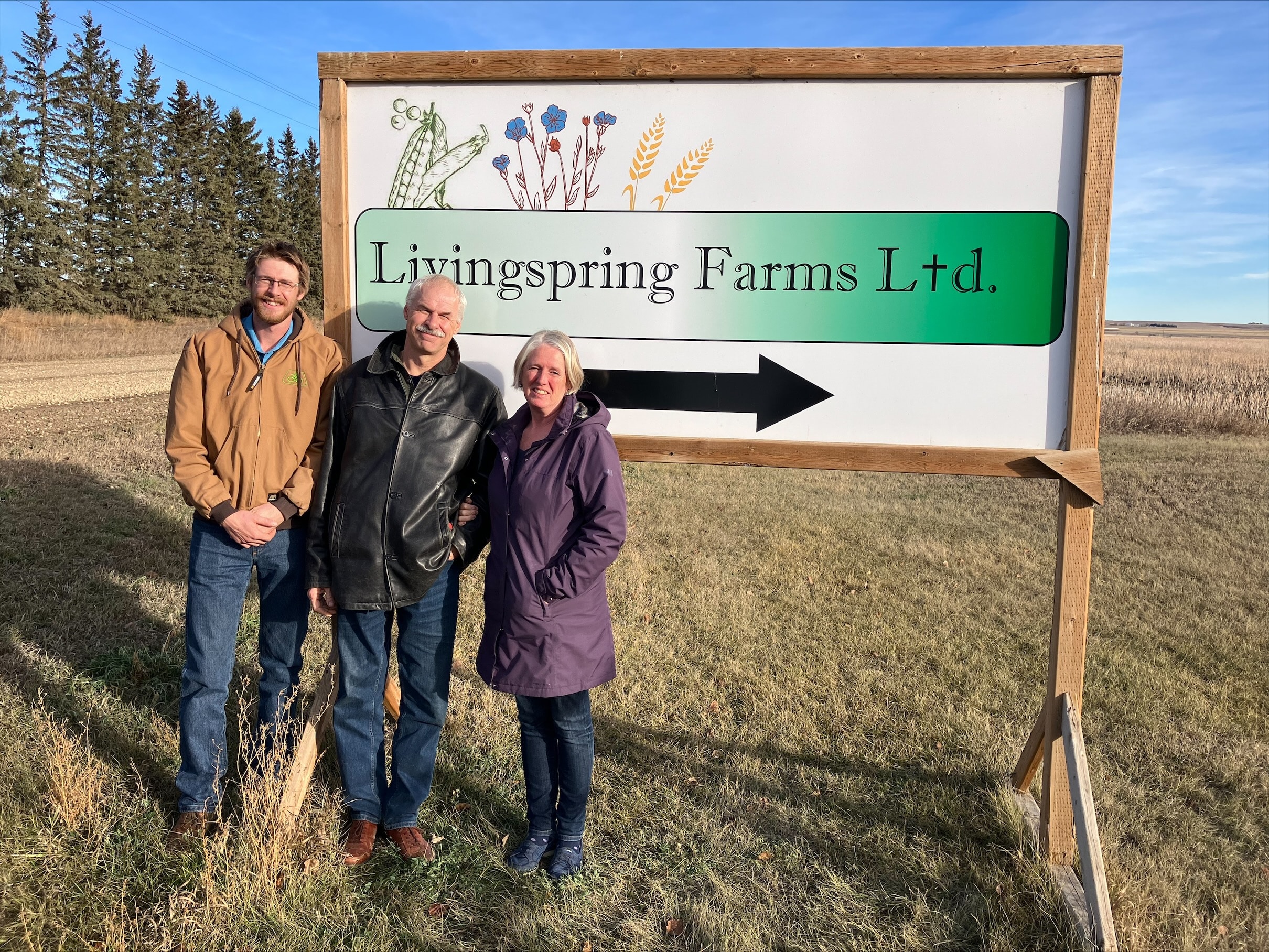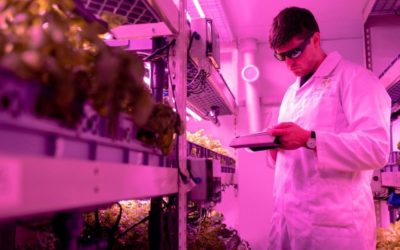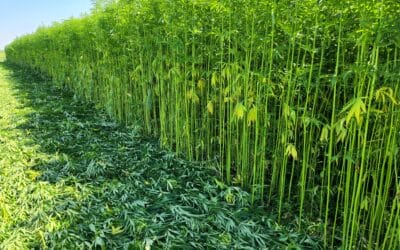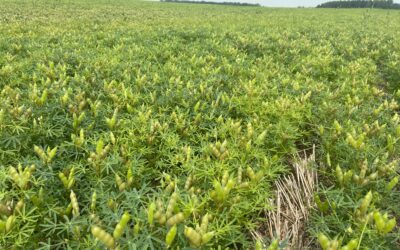Each generation of the Hoff family has added something to Livingspring Farms to help it expand and grow for the future.
When Peter Hoff took over his family’s farm, Livingspring Farms, he knew he wanted to put his own mark on the farm and add a specialization. While attending Olds College in 1987 he took a class on pedigreed seed production which piqued his interest.
“In the early 90’s there was just a proliferation of new varieties and just a real good opportunity to start to get into the pedigreed seed system,” he says in a phone interview.
His grandfather, Carl Hoff, was uncertain about the getting into the pedigreed seed business. He had started the farm in Gleichen, Alta. in the 1920s after immigrating to Canada from Germany. Carl ran the farm for many years before handing the reins over to his son, Ed Hoff, who took over in the 1960s. Ed focused on expanding the technology on the farm and introducing modern machinery.
“My dad actually was quite open to (seed growing). He gave me the opportunity to try some new things and went along with it,” Peter says.
The gamble paid off and over three decades later the Hoffs are established seed growers in the province. They run a 2,300-acre operation with most acres cultivated and one section under irrigation. The Hoffs grow spring wheat, barley, flax, peas, and faba beans for seed, as well as commercial canola.
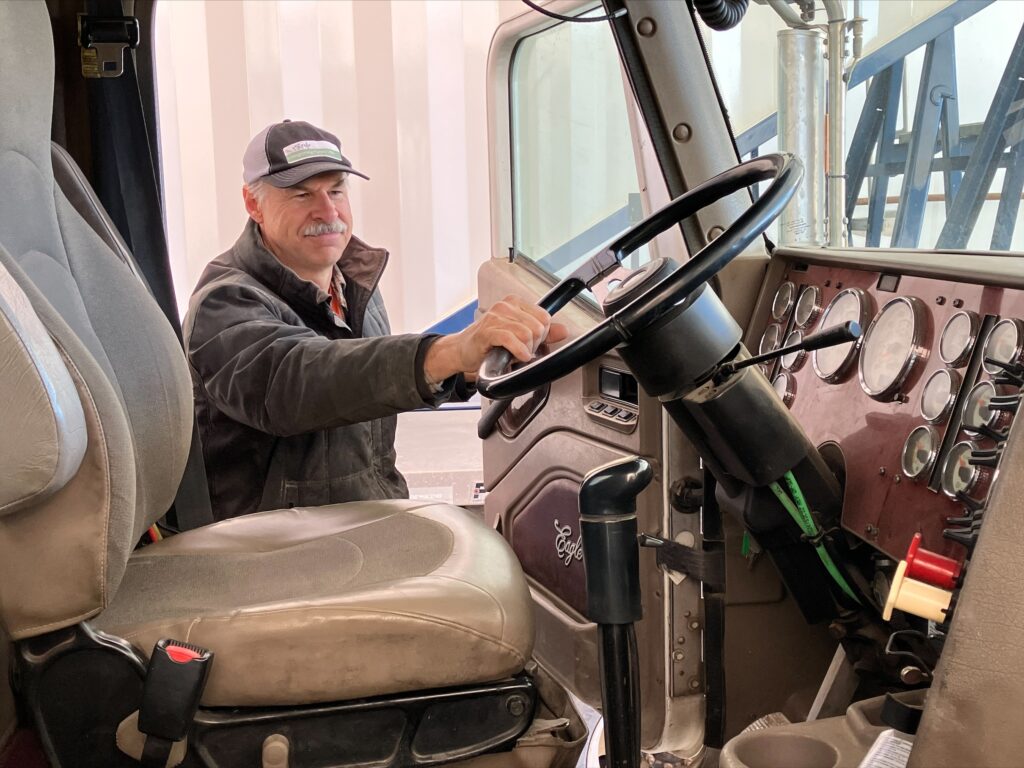
Peter Hoff climbs into a grain truck on Livingspring Farms in Gleichen, Alta. Photo: Livingspring Farms
With Peter running the farm for decades now, the next generation is starting to take over. Peter’s son Bergen has been working on the farm and taking on more duties. He’s also starting to make his own mark on the business and is looking into starting a small cow, calf operation.
“My son, who’s kind of a big part of the farm now, he’s just that age where he’s starting to do his own thing a little bit. He’s exploring regenerative agriculture and wants to introduce livestock to our farm, which we haven’t had for many years,” Peter adds.
Bergen’s interest in regen ag stems from summers spent working at his cousin Eric Nottveit’s ranch on Peonan Point in the Manitoba Interlake region. Bergen enjoyed working with their livestock, so Nottveit recommended he read the book “Dirt to Soil” by Gabe Brown, which fed his interest in using regen ag on his own farm.
“We shouldn’t be trying to just maintain the value of the land we have or maybe let it go backwards. Instead of sitting here watching it stay the same or go backwards, let’s actually be proactive and try to make it better,” Bergen explains in a phone interview.
To start on his regen ag journey, Bergen purchased a cow and two calves and also ran some of his neighbour’s cattle on Livingspring Farms during the summer of 2023. His hope is to expand his herd to 10 cows, but high cattle prices are holding him back from increasing his herd too fast.
“It’s a new game to me and I’m still learning a lot. It’s hard to know if I should step into the market or not,” he says. “I have lots of really good, educated neighbours and friends though… I lean on those people a lot for advice.”
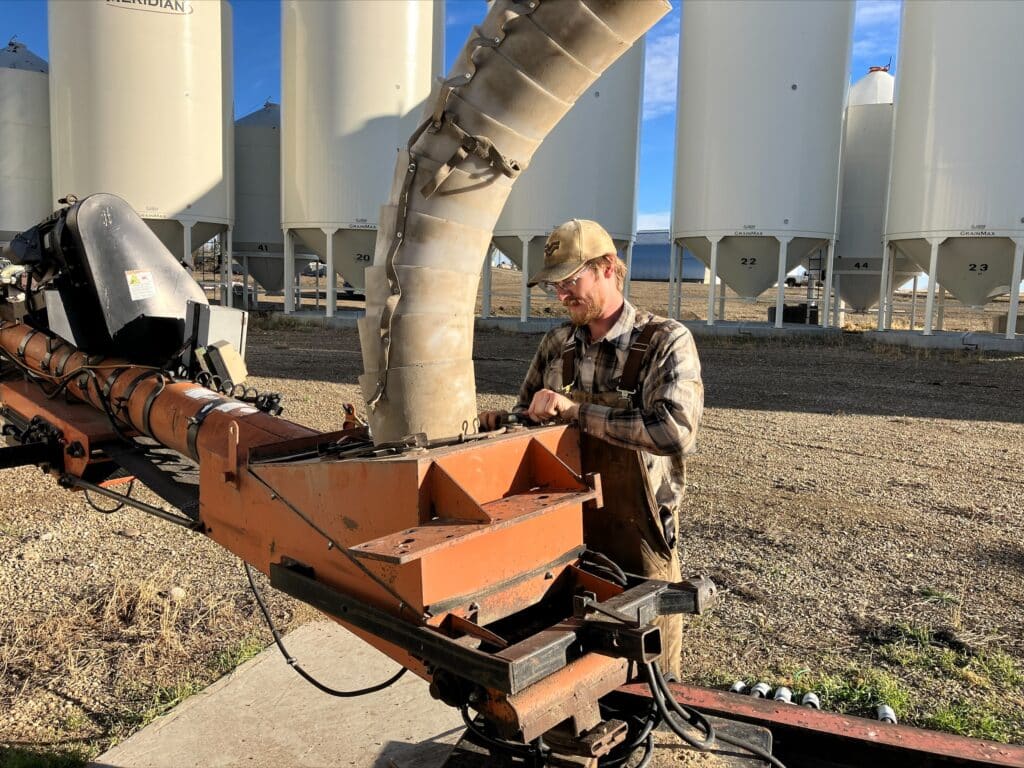
Bergen Hoff cleans and adjusts a conveyor in Livingspring Farms grain handling system. Photo: Livingspring Farms
Livestock aren’t the only regen ag interest Bergen has. As they look at having more livestock on the farm, Bergen thinks they could also start growing more forage crops for the livestock.
“I think there’s opportunities for getting into seed production in grasses or different forage crops. And that is where we can maybe have opportunities to grow some of different varieties that would do better with regenerative practices,” Bergen adds.
As Bergen has taken on more work around the farm, it has allowed Peter time to get more involved with agricultural associations. While he always made sure to attend the Alberta, British Columbia Seed Growers Association’s annual general meetings over the years, there wasn’t a lot of time to get involved with much else.
“It’s pretty hectic, especially in the springtime when you’re the only person treating and retailing, seed off the farm,” Peter says. His wife Cynthia also works on the farm doing bookkeeping and operating machinery, but until Bergen stepped into a larger role, Peter handled most production tasks himself.
Now, Peter has started to branch out and become more involved. He was part of the Alberta Federation of Agriculture, and now sits as a director on the board for the Alberta Pulse Growers. He is also on the board of his local seed cleaning plant, Strathmore Seed Cleaning Plant.
“Farmers generally understand the value of agronomy and how to manage their operations. What I feel they often neglect is the policy end of things — trade policies, public trust and transportation issues are just as important to the bottom line. Being involved in crop commissions helps me to support this,” he explains.
Transitioning a farm to the next generation isn’t an easy task. Livingspring Farms has several generations involved with Peter’s father and siblings owning land. As they work to move the operation over to Bergen, it’s taking a lot of work between all parties involved.
“It’s just a matter of relationships and our faith. As Christians, we value one another and see our purpose as beyond just making a profit but also to be good stewards of the land and having honesty and integrity in what we do,” Peter explains. “We would be thankful if we could keep the farm going for another few generations.”
For Bergen, he’s grateful to have the opportunity to farm and continue the family tradition.
“It’s kind of cool how every generation has allowed the other generation the opportunity to farm,” he says. “It’s really hard to get into farming these days. I’m thankful for the opportunity I’ve been given to actually be able to farm. It’s a lifestyle that’s not easy to come by anymore.”
Header photo — (L-R) Bergen, Peter and Cynthia stand in front of the Livingspring Farms sign in Gleichen, Alta. Photo: Livingspring Farms
Related Articles
Corns Seeds are Seed Growers Working with Plant Breeders
Renee Hoyme is Bridging the Gap for New Seed Growers
Will Van Roessel is Expanding the Offerings as a Seed Grower


